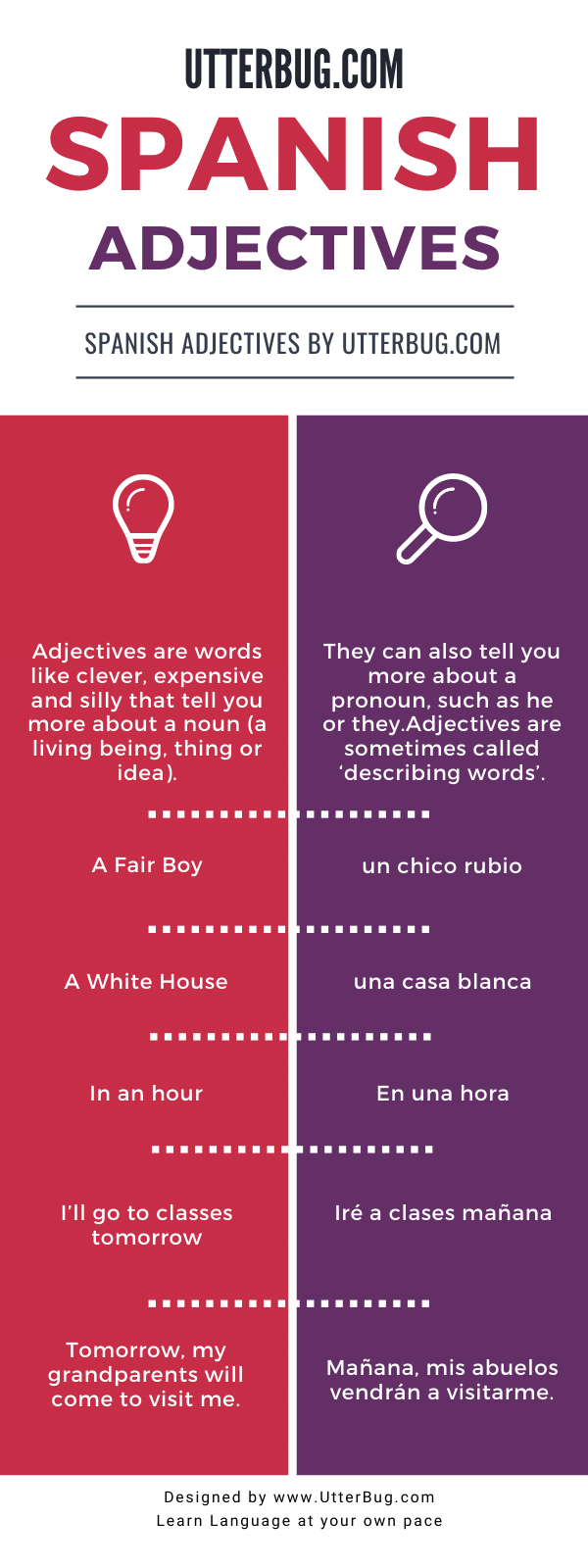
Table of Contents |
|
| 1. Adjectives in Spanish | |
| 2. List of Spanish Adjectives | |

Adjectives are words like clever, expensive and silly that tell you more about a noun (a living being, thing or idea). They can also tell you more about a pronoun, such as he or they.
Adjectives are sometimes called ‘describing words’. They can be used right next to a noun they are describing, or can be separated from the noun by a verb like be, feel and so on.
| A Clever Girl |
| And Expensive Coat |
| A Silly Idea |
| He's Just being Silly |
| She's cleverer than her Brother |
| That's the silliest idea I've ever Heard! |
| A White House | una casa blanca |
In Spanish, however, most adjectives agree with what they are describing. This means that their endings change depending on whether the person or thing you are referring to is masculine or feminine, singular or plural.

| Mañana | Tomorrow |
| Iré a clases mañana | I’ll go to classes tomorrow |
| Mañana, mis abuelos vendrán a visitarme. | Tomorrow, my grandparents will come to visit me. |
| En una hora | In an hour |
| Acabaré mi tarea en una hora | I’ll finish my homework in an hour |
| El avión llegará en una hora | The plane will arrive in an hour |
| En media hora | In half an hour |
| Mis padres vendrán a recogerme en media hora | My parents will come to pick me up in half an hour |
| Él llegará a casa en media hora. | He will come home in half an hour. |
| Luego | Afterward/then |

Spanish Comparatives And Superlatives Of Adjectives